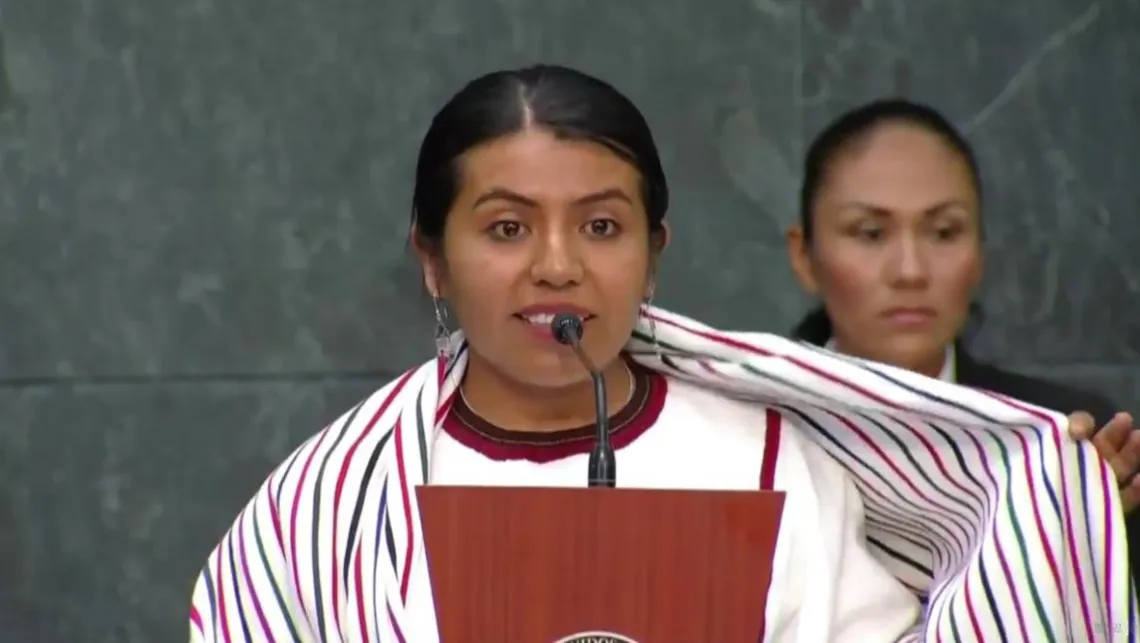Mixe teacher wins the 2016 National Youth Award

Tania Eulalia Martinez Cruz, MS, won the National Youth Award 2016 in the category of Academic Achievement on August 12, 2016 and received the award from President Enrique Peña Nieto, in the official residence of Los Pinos in Mexico City.
Martinez is an indigenous Mexican of the Mixe tribe from Oaxaca. She is a graduate of Chapingo Autonomous University in Texcoco and ABE and is now working on her Ph.D. at Wageningen University in the Netherlands and hopes to finish in January 2018.
From 2012 to 2013 she worked for the International Maize and Wheat Improvement Center (CIMMYT) in Mexico for two projects, MasAgro Movil and Agricultural Extension that were part of the Conservation Agriculture Program (now Sustainable Intensification Program)
Martinez is now working on a Ph.D. at Wageningen University in the Netherlands and hopes to finish in January 2018. She is doing her research through CIMMYT, which also happens to be in Texcoco and is famous as the center from which Norman Borlaug undertook his “green revolution” research.
Martinez’s Ph.D. research focuses on the mechanisms of social inclusion/exclusion in technology driven interventions, Conservation Agriculture, Native Maize and ICT’s initiatives, and their articulation with the MasAgro Program.
As part of Martinez’s career, she has taken a strong commitment to the social environment and is working on a documentary project on indigenous people held in prison for minor offenses and violation to their human rights. She has created awareness workshops and social inclusion for food security initiatives.
From 2008 to 2010 Martinez worked as a research assistant, consultant and irrigation specialist for the Chapingo Autonomous University in an Irrigation technology transfer project. This project was crucial to her career and helped her move into the social side of technology driven interventions and agricultural policy.
Also, in 2010 Martinez was awarded a Fulbright scholarship to pursue an MS degree in Agricultural and Biosystems Engineering specializing in water management and crops for biofuels production. She became the first indigenous receipt of the Fulbright Program in Mexico.
Her research focused on testing irrigation levels to see which ones were more efficient for bioethanol production with sweet sorghum in the Arizona desert. The idea of this project was to evaluate how water stress effected ethanol production or if it could reduce the irrigations and still have a got ethanol yield.
As a future project she would like to collaborate in similar programs/initiatives providing feedback to implementers on how to reach a bigger audience from the perspective of social inclusion.

